Israel looks for answers to boycott campaign
- Published
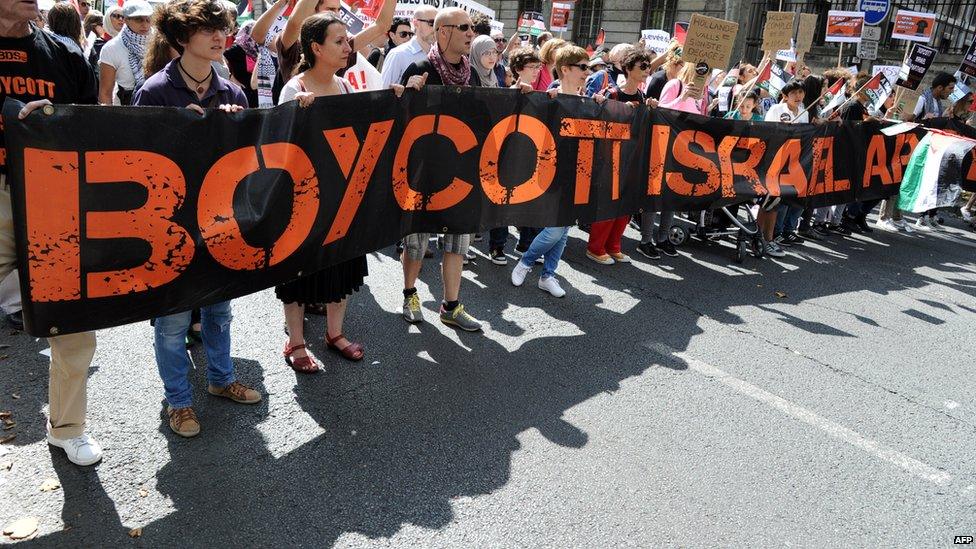
The BDS campaign has become an international movement since it was launched 10 years ago
In the world of international relations there are plenty of ways of expressing disapproval, from trade sanctions and travel restrictions to arms embargos.
But none of them arguably resonate with the public in quite the same way as a successful consumer boycott.
The template for modern campaigners was set by anti-apartheid activists working to bring down white minority rule in South Africa.
They persuaded the world not to play sport against South African teams - something the South Africans particularly hated - but more importantly they made it a kind of litmus test of decency to refuse to buy fruit or wine from the Cape.
The precise economic effects may have been debatable but the political impact was significant - it sent a signal to the apartheid regime that it was not part of the global family of decent, developed nations.
There seems no doubt that the resulting sense of economic isolation increased the pressure on South Africa to change.
Colonialism charge
In recent years supporters of the Palestinian cause around the world have been trying to bring similar pressure to bear on Israel - and Israel, deeply incensed by any hint of comparison with the apartheid regime, has been searching for the right sort of diplomatic tools to push back.
Michael Deas, campaigns director of the Palestinian Boycott, Divestment and Sanction (BDS) National Committee in London, clearly believes that the tide is running their way.
BDS's Michael Deas explains the thinking behind the boycott campaign (2015)
He argues: "There's a growing fear inside Israel that it's facing international isolation of the kind South Africa faced... it's really interesting that after just 10 years the pressure that we are creating is forcing many ordinary Israelis to question whether Israeli... colonialism is sustainable in the long-term in its current form."
Israelis regard the word "colonialism" as provocative in this context because it brackets the Zionist settlement of the Holy Land with the European takeovers of territory in Africa, Asia and elsewhere in previous centuries.
Israelis say they are reclaiming an ancient right to the land and shouldn't therefore be seen as a chapter in the history of colonialism.
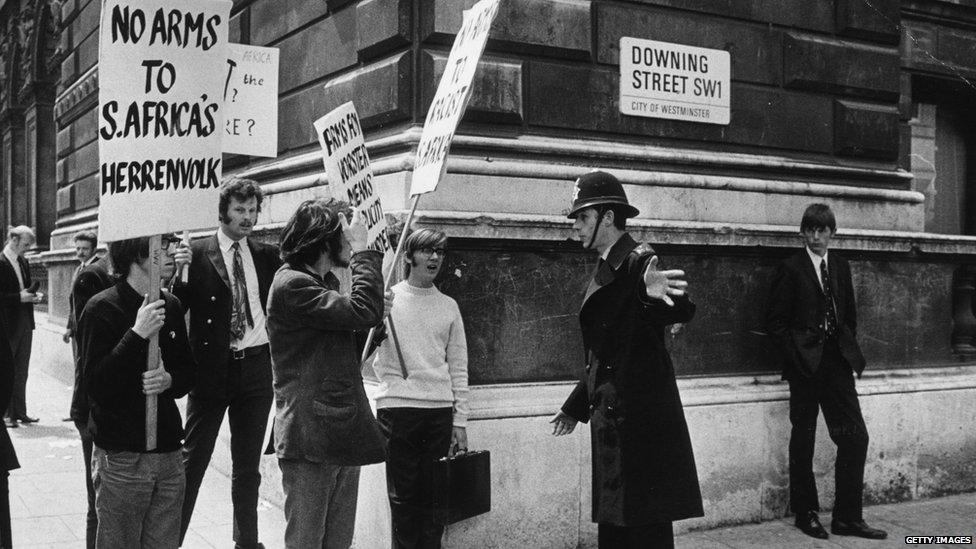
Israel says comparisons with South Africa's former apartheid regime are nothing more than a smear tactic
Measuring the effects of a boycott is not easy - if consumers decide not to buy Israeli products, for example, it's difficult to be sure if they're making a political choice or are simply put off by the price or attracted by an alternative.
But the BDS movement feels it can point to clear successes.
It believes it has forced the French infrastructure company, Veolia, to disinvest from the Israeli market through a kind of grassroots campaign asking for example local taxpayers in Europe to persuade their councils not to invest in the firm because it operated in Israeli settlements built on land captured in the war of 1967.
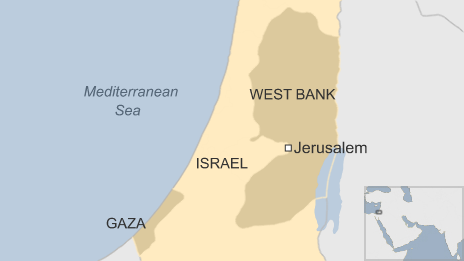
In most interpretations of international law of course - although not Israel's - those settlements are illegal and are wanted for the construction of a Palestinian state.
Veolia's official press release at the time couched the decision to sell its businesses in Israel as part of a debt reduction strategy but BDS activists are in no doubt it was a win for them.
'Anti-Israel'
One business which won't be selling up or relocating under overseas political pressure is Yaakov Berg's winery at Psagot in the hills of the West Bank - or Judea and Samaria as Yaakov prefers to call it, using the area's biblical names to emphasise its ancient links with the Jews.
Yaakov is dismissive of the modern BDS movement and sees it simply as a continuation of a traditional hostility to Israel and to the Jews of the world in a contemporary form.
Israel's then Deputy Foreign Minister Tzipi Hotovely: "Israel and apartheid have nothing in common." (2015)
He told me: "I don't really believe that all those BDS movements care for human lives or human rights. It's like they are a tool for our enemies who used to fight with Israel on the battlefield.
"Now everyone understands on the battlefield they are going to lose. They tried it once, twice, five times, so now they say, 'You know what? Let's fight them in the economy field [instead].'"
He considers himself a good employer of his Palestinian staff and argues that without him they wouldn't have jobs - an argument that BDS activists dismiss as patronising and disingenuous.
But Yaakov, like many people in Israel, is convinced that the BDS movement is about hurting Israelis, not helping Palestinians.
He throws it out as a challenge: "You want to help the Palestinians? Come on, go and help them. Let's say the Palestinians start producing wine - buy their products."
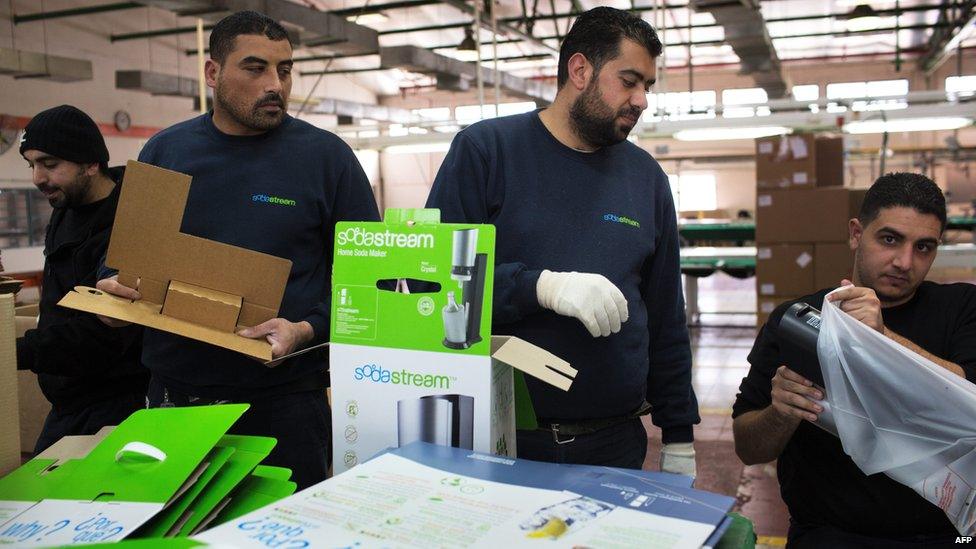
The Israeli firm SodaStream, which had a factory in the West Bank, was targeted in a high-profile boycott campaign in 2014
Beyond settlements
The precise terms of the boycott are important.
Some groups want to target Israeli companies that are based in the West Bank - or those that export fruit and vegetables grown there.
Others, including Michael Deas, believe that doesn't go far enough - and offers this reasoning: "The Palestinian call is for boycotting of all Israeli products."
"We know some people... are only comfortable with boycotting products that come from settlements. That's a position we can understand and can sympathise with," he told the BBC.
"The problem is that Israeli companies... routinely lie about where their products are coming from, so the only safe way for people to avoid buying products from the settlements is not to buy Israeli products altogether."
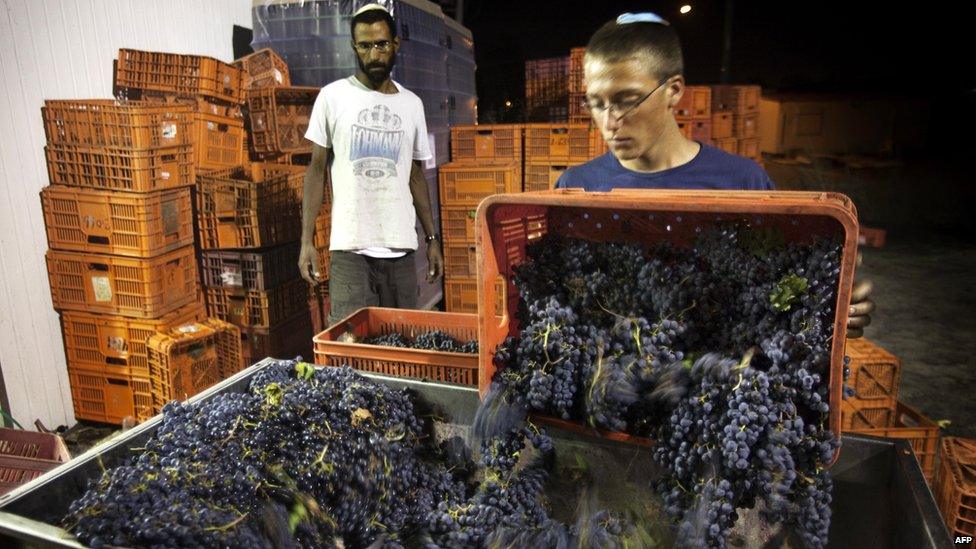
Boycott campaigners say purchasing produce from Jewish settlements helps reinforce Israel's presence in the occupied West Bank
That's the kind of reasoning which infuriates Israel's Deputy Foreign Minister Tzipi Hotovely, who sees calls for a boycott of Israel as anti-Semitic and argues that well-meaning people around the world are being misled by the BDS leaders.
"They don't care about settlements and they don't care about borders," she told me, "All they care about is that Israel shouldn't exist as a Jewish state."
'Singled out'
The Israeli government and some of its foreign supporters are considering ways of pushing back against the BDS movement but it is the kind of grassroots campaign which is difficult for a government to oppose.
And many Israelis feel its unfair that their country is singled out for this kind of campaigning attention while protesters tend to have much less to say about human rights issues in nearby states like Iran, Syria or Saudi Arabia. It's a point neatly made in an online video, external by the singer Ari Lesser.
But the fact is that Israel is the focus of a determined and persistent campaign and has to find a way to try to get popular sentiment back onto its side - a tough task in those European countries where the Palestinian cause is popular.
You can expect the calls for a boycott to be one of the major issues between Israel and its critics in the years to come.